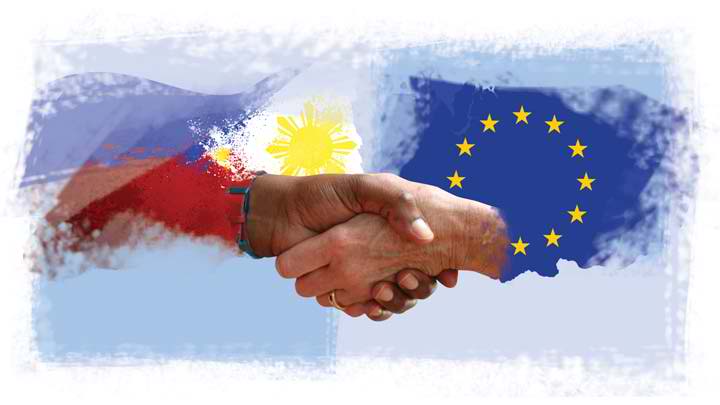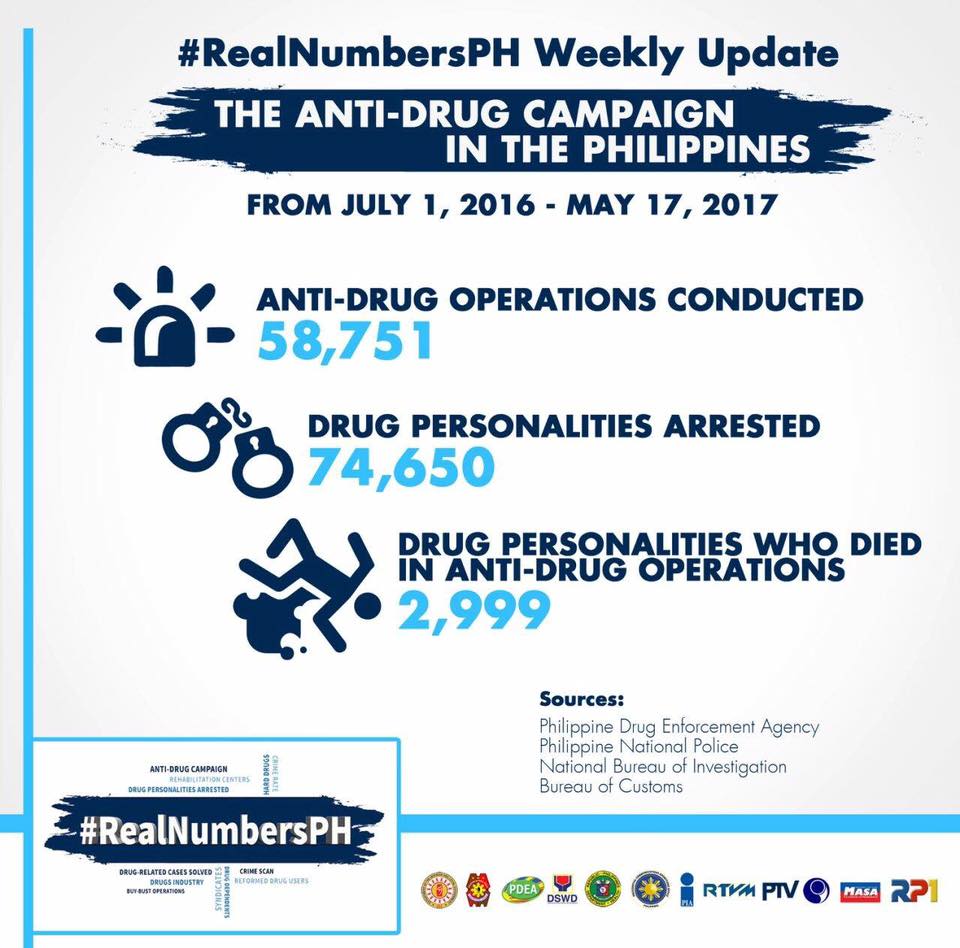PHL Refuses EU “Conditional” Aid/Grant- Why?
Philippine Press Secretary Ernesto Abella in one of his press conferences confirmed that President Duterte has decided to reject grants with certain conditions from the European Union (EU). He further clarified that the Government is only refusing EU grants that impose conditions, which the Government considers as allowing EU to interfere with the country’s affairs. The Executive Secretary also mentioned that the Government is “willing to forego about 250 million Euros ($278.88 million) worth of grants to prevent EU from meddling in its internal affairs”. A top government official likewise stated that the Philippines’ decision to stop development assistance from the EU was a “display of the country’s independent foreign policy”. On the other hand, some of the members of the Government’s economic team were unsure of the said pronouncements. They have refrained from making comments pending further clarifications. In fact, one Cabinet member expressed that the decision of the President could be “more of a reaction, not a policy”.
As can be gleaned above, the rationale for the said Government’s decision is based on the following: 1. The Government’s “independent foreign policy”, and 2) The Government’s reiteration for other countries to avoid interfering in the conduct of its internal affairs, particularly on its policy on illegal drugs and human rights.
Prior to Duterte’s inauguration as President in May 2016, it was already his “banner” election campaign that he will end crime in the Philippines by declaring war on illegal drugs. As soon as he stepped into the halls of Malacanang (official Government seat). The Philippine National Police (PNP) was tasked to implement the same. During the course of PNP’s “hunting” operations (e.g.buy bust), a number of killings have been reported.
In view of the foregoing, EU became critical of Duterte’s Administration. It has raised serious concerns specifically on the following:
-The so-called Extrajudicial Killings (EJKs) coupled with human rights issue in the Philippine Government’s drug war; and
-The arrest of Sen. Leila de Lima, a staunch critic of Duterte, which according to them the charges “are almost entirely fabricated”. In fact, some of EU Parliament members have demanded for the release of Ms. De Lima, whom they deemed a political prisoner, and that they are worried over her safety in prison.
The Philippines and the EU (with its 20-member countries), have long-standing and extensive friendly economic relationship way back in the 80s when they both formally tied the knot, so to speak, under a bilateral agreement. Said relationship have been deepened through the years which made EU in the long run offer to help the Philippine Government via developmental aid for certain sectors such as health, governance and assistance to vulnerable places particularly the southern part of the Philippines (Mindanao) wherein most of the people are affected by Muslim rebellion/armed conflicts for decades already.
Based on accounts, EU granted the Philippine Government development assistance amounting to 130 million euros (or US$ ) for the period 2007 to 2013. In 2015, it pledged 325 million euros over four years to finance projects in Muslim Mindanao after the Philippine Government signed a peace deal with rebels in March 2014. In2016, the European Union accounted for about 10% of the Philippine’s external trade, with receipts worth $6.4 billion.
Note that the aforesaid grants are not “dole-outs”. There are so-called “strings attached” to it. Just like other grants and loans offered to/obtained by the Government, there are conditions set forth by the grantor or the lender. It’s normally connected to certain conditionalities, warranties and responsibilities for the grantee/debtor to accomplish. Based on my experience, these grants and loans are not handed out in its entirety. The Government does not really control it lock, stock, and barrel. The funds are channeled through implementing agencies handling the identified projects and are released in tranches, with corresponding timelines and action plans. In the case of EU grants for instance, periodic reviews are being undertaken by EU Team to check if the Philippine Govt. have complied to the conditions embodied in the Agreement. As stated by the EU Ambassador to the Philippines, Franz Jessen, one of the conditions set forth by EU is compliance with international agreements such as human rights, among others, in order for the Philippines to qualify for trade incentives, tariffs and the like.
Points to ponder:
-While it is the right of any Government to accept or reject financial assistance from other countries, the Philippine Government’s decision to refuse aid/grant from EU may not be prudent at this point in time. Dutertenomics is still in its planning stage. Real amounts from other external funding have yet to reach the Government’s coffers. The economic managers are still at the preparatory phase, perhaps initiating discussions with the donor/grantor/lender country on provisions of the Agreement and funding specifics. On the other hand, EU’s $6.4 billion is already being offered on a platter, so to speak. And this amount could help finance the needed requirements for other priority programs of Government particularly those projects that would alleviate the lives of the poor and the disadvantaged. The more we get help from other countries, the better for our countrymen.
-While there are other possible alternatives for funding from outside sources (e.g. China, etc), these funding requirements will definitely have conditions as well. Any assistance coming from both bilateral and multilateral agencies (e.g World Bank, etc.) will take the opportunity to at least monitor on how money will be spent, whatever form it may be. Who in his right mind anyway would shell out billions of dollars just to extend help with no conditions or sans proper monitoring? That’s real talk!
-EU’s conditionalities are understandable, e.g. human rights issue,etc. There’s nothing wrong with human rights, per se. It’s all for our own good and that’s one of the fundamental rights under the Constitution. However, the said “human rights” related to EJK issues should have not been included as one of the conditionalities of the grant. EU has publicly criticized the Government’s policy on illegal drugs relying on and using information coming from unofficial sources particularly from media and a number of people anti to the President of the Philippines. EU has blatantly condemn the Government for the EJK’s (which to Government authorities are not sanctioned by them, and if so, submit proofs of evidence to them) and is supportive of Leila de Lima, who was charged and detained because of her alleged involvement in illegal drugs. EU thinks the charges against De Lima are fabricated. The Philippine Government thinks otherwise. EU should have coordinated and verified with Government authorities on the antecedents of the case. Note that it was during her time as Secretary of Justice where illegal drugs have proliferated in the Bureau of Jail Management and Penology (BJMP). As such, It would rather be appropriate for the Senator to respond to the allegations in the proper courts. There are some people who are experts in twisting and warping the truth. Apparently, EU believed in the disinformation, demolition and destabilization efforts against the Government, specifically the President who was duly elected by the people.
For the benefit of those who have not seen the real numbers of the war on drugs:
Based on “Real NumbersPH” of the joint anti-drug campaign of the Philippine Drug Enforcement Agency (PDEA) and the PNP as of May 17, 2017, of the 4 million users there were approximately 1.3 million surrenderers, 7% of which are drug pushers. Said anti-drug campaign resulted in reduction of index crime of roughly 28.6%, that is from 134,958 (July 2015-March 2016 to 96,398 (July 2016 to March 2017). Of about 58,000 anti-drug operations conducted, 74,650 drug personalities have been arrested and 2,999 killed. This true information is hardly published, nor highlighted particularly in international news reports, e.g. New York Times and in reports submitted to the United Nations, Human Rights Groups, European Union and the like.
-
It would be worth remembering the day when the Philippines can stand on its two feet, so to speak! That would be another great INPENDENCE DAY for all of us! But we’re still crawling, trying to learn the baby steps!
To my mind, the third point is where the Philippine Government and the EU have differences. Hopefully, the wrong interpretation/disinformation campaign will not ruin the good relationship between the two countries. As previously tweeted, it would be great if the Philippine Government will reconsider its earlier position, so as to maintain a friendly environment for all.
(Note: I am a Catholic. I support war on drugs. But I don’t like killings, as much as possible. I would like to know the real truth).
Have a great weekend!
cto featured photos

